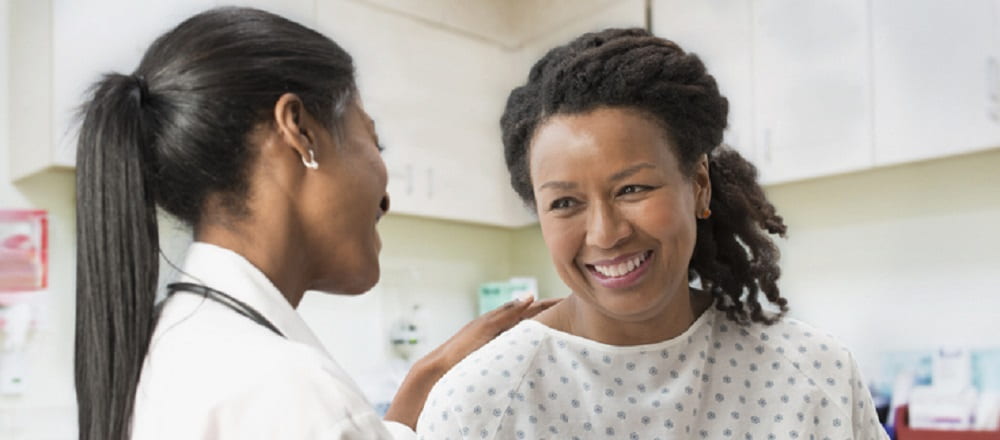By Ashley Housten, OTD, MSCI, OTR/L
Women have a decision to make. Most know they need a mammogram every 1-2 years, but determining when to start and how often to be screened can be tricky. Siteman Cancer Center radiologists recommend that every woman begin yearly screening at age 40. But you may be hearing different messages about this from other doctors, family and friends, or trusted internet sources. Some people start screening in their 40s, while others wait until age 50. When you are at average risk (no known increased risk factors), getting a mammogram earlier than age 50, just to be on the safe side, could have some potential downsides that you may want to weigh against the potential benefits. Here, we’ll explain those benefits and downsides so you can decide when the right time is for you to start being screened for breast cancer.
What are the current screening guidelines?
Leading organizations suggest discussing with your doctor when to start screening and how often to be screened. Your doctor will talk with you about your family and personal health histories. This will help you and your doctor decide whether to start screening in your 40s or at age 50, and whether to be screened once a year or every other year.
If some people need to start screening at an earlier age, why doesn’t everyone, just in case?
For some women, being tested for breast cancer may put them at ease. However, for others, breast cancer screening before age 50 can cause stress and anxiety.
One of the biggest downsides to screening earlier is the possibility of getting a false positive result, which means the screening has detected cancer where there is none. This can lead to follow up tests that are not only expensive, but require you to take time off of work and can cause considerable anxiety and worry. Follow-up biopsies can also be painful.
Talking to your doctor about the benefits and downsides of mammography screenings can help you decide what’s right for you and potentially ease your anxieties.
So who should begin screening at an earlier age?
There are a couple of things that might put you at a higher risk of developing breast cancer. The most important is whether there’s history of breast cancer in your family. This includes women who carry the BRCA gene mutation. A few less common risk factors are having received chest radiation therapy at a younger age, or having a prior history of breast cancer.
Current screening recommendations for women of average risk do not differentiate between races/ethnicities. These guidelines are for all women in the U.S.; however, research continues to focus on factors that may contribute to underscreening and late diagnoses among women of color. We have made significant improvements in screening to address these disparities, but there is still work to do.
Women have a decision to make: start screening every 1-2 years in their 40s or at age 50. Routine breast cancer screening is important, and it is the best tool we have to detect cancer at an early stage when treatment is most effective. Talking with your doctor before age 40 to think about the benefits and downsides may help you prepare for your decision. Talking with your doctor is the best way to make a decision about when to start breast cancer screening.
Resources for screening guidelines:
https://www.cancer.gov/types/breast/patient/breast-screening-pdq
https://www.cdc.gov/cancer/breast/basic_info/screening.htm

Ashley Housten, OTD, MSCI, OTR/L is an assistant professor of surgery at Washington University School of Medicine in St. Louis. Her research focuses on supporting cancer screening and treatment decision-making to reduce health disparities and to address challenges associated with health literacy in diverse populations
Photo Credit: Getty Images
